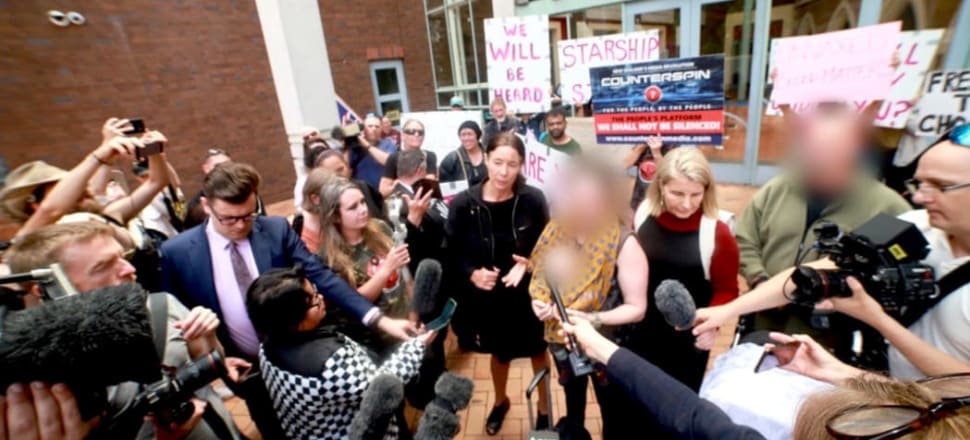
It's reassuring to see Te Whatu Ora and NZ Blood Service carefully exploring how to defuse tensions in this critical healthcare stand-off
The High Court dispute over heart treatment for a four-month-old boy is almost too sad for words. His parents oppose the use of "vaccinated blood" in surgery.
Te Whatu Ora-Health NZ filed an application under the Care of Children Act seeking guardianship of the baby to be transferred to the court so consent could be given to use donated blood in the required open-heart surgery.
"It is very tough for everyone involved – family and clinicians," Te Whatu Ora chair Rob Campbell tells Newsroom. "Situations such as this making these balanced decisions are regrettably not unusual for clinical staff. Because of this there are well-established clinical and legal processes which our team are following."
READ MORE: * Application for Omicron vaccine expected in the coming months * Covid virtue signalling promises false certainty
He's right, New Zealand has been here before. Sometimes it's resolved in the quiet of the hospital room; sometimes in front of the TV cameras on the steps of the High Court. In 2012, a two-year-old girl was put under the protection of the High Court because her Jehovah's Witness parents would not consent to her receiving a kidney and liver transplant.
Then again, the following year, the 10-month-old daughter of a Jehovah's Witness couple was put into the guardianship of the court for nine months so Starship children's hospital doctors could provide her urgent chemotherapy and surgery to treat a big tumour.
There was some suggestion, in those cases, the parents implicitly wanted their daughters to get the treatment, but their religious beliefs prohibited them from authorising the transplants and transfusions – so they were comfortable with the court being empowered to make that difficult call.
On this occasion, there is no suggestion the parents' position is faith-based. Rather, it appears to be rooted in the misinformation peddled by some who purport to stand in their corner, such as lawyer Sue Grey and former broadcaster Liz Gunn. That too is a tragedy.
A greater tragedy would be for both sides to dig in their heels when there is potential for a compromise that might help de-escalate Covid vaccination tensions that NZ had hoped were in the past.
Grey says her anti-vaccination group has 30 or so donors with suitable, compatible blood who are willing and able to make that blood available for the baby. She argues Te Whatu Ora simply needs to make blood from the unvaccinated donors available to NZ Blood Service.
"We cannot create a service to the loudest voice – it would make our equity issues worse, I fear." – Prof Nikki Turner, Immunisation Advisory Centre
Could that provide a compromise solution? Sadly, no. That donor pool is too small to confidently eliminate any other risks; bigger blood pools provide greater risk mitigation in filtering and treating the blood, because of the ways it's treated and separated here and in Australia, before use.
And the truth is, blood from unvaccinated donors would not make one drop of difference to the "safety" of the transfusion. As NZ Blood Service points out, any Covid-19 vaccine in the blood is broken down soon after it's administered. All donated blood also gets filtered during processing, so any trace amounts that may still be present pose no risk to a recipient.
Furthermore, given how many New Zealanders have now had Covid, the blood from those 30 donors will likely carry similar antibodies as that from a vaccinated donor – antibodies from vaccination fight the disease in the same way as antibodies from having a previous case of Covid, says Auckland University’s Immunisation Advisory Centre medical director Professor Nikki Turner.
"If we put a lot of new resources into altering our health services quality approaches for one issue it would remove very precious resources from somewhere else," she tells Newsroom. "Also it's very likely to escalate not de-escalate ... we cannot create a service to the loudest voice – it would make our equity issues worse, I fear."
What is reassuring is to see Te Whatu Ora and NZ Blood Service carefully exploring compromises that could de-escalate this stand-off. Because arguing it on the steps of the High Court or even in the courtroom doesn't much help the family – it only provides a platform for those who would fear-monger.







